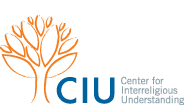A Time to Act
To borrow from an op-ed by former NBA basketball star, Kareem Abdul Jabaar, racism is like the fine dust motes in the air; it is invisible until you shine a light on it, and then you see it is everywhere. It fills every room and every space and is in the air we all breath. Except that the black community in America is choking on it – figuratively and, in the unjust death of George Floyd, literally.
The silent scream of pain within the black community has now erupted into a howl of agony; the marches, the talks, the opinions, even such as this, do not heal, do not even ease the collective pain.
This agony persists because, to our shame, George Floyd’s death, as well as Breonna Taylor’s and Ahmaud Arbery’s at the hands of police, are but three in a seemingly unending list of flagrant murders, attacks, and demeaning and humiliating encounters Black Americans have with law enforcement. (We do not mean to accuse all American police of racism and brutality, since most are doing an honorable and difficult job, but neither do we excuse those who could have spoken out but have remained silent in the face of discrimination and worse.)
Unfortunately, police attitudes do not spring forth out of nowhere. Racism was systemic in American history and continues to live on in our lives today. For instance, it is dramatically evidenced right now in the tragically disproportionate numbers of African-Americans and ethnic minorities felled by Covid-19.
Our own democratic foundation and history tells us clearly who we should be and what we must do to heal a torn nation and a battered minority. We have only to turn to the words of Abraham Lincoln’s second inaugural address:
“…With malice toward none, with charity for all, with firmness in the right as God gives us to see the right, let us strive on to finish the work we are in, to bind up the nation’s wounds…”
Now is the time for the painful and hard work of honestly examining our national past, our current practices and to commit, wholeheartedly, to taking the necessary steps to making the rights and benefits of democracy accessible to all our citizens.
In addition, each of our religions provides us with roadmaps of the right path to correct these injustices. They are ultimately paths to peace, since there cannot be peace as long as races, religions, ethnicities, and sexes are discriminated against and victimized. The Jewish Prophet Malachi (2:10) instructs us:
Have we not all one father? Has not one God created us? Why do we deal treacherously every one against his brother?
To put an end to this personal and national suffering, religions must now take their places as the voices of humanity and the conscience of society. To do this, to be truly religious, we must examine every choice we make, every decision, every endorsement, and every vote to ensure that each of those moves is a step that enhances peace and brotherhood and enhances the dignity of each human being.
